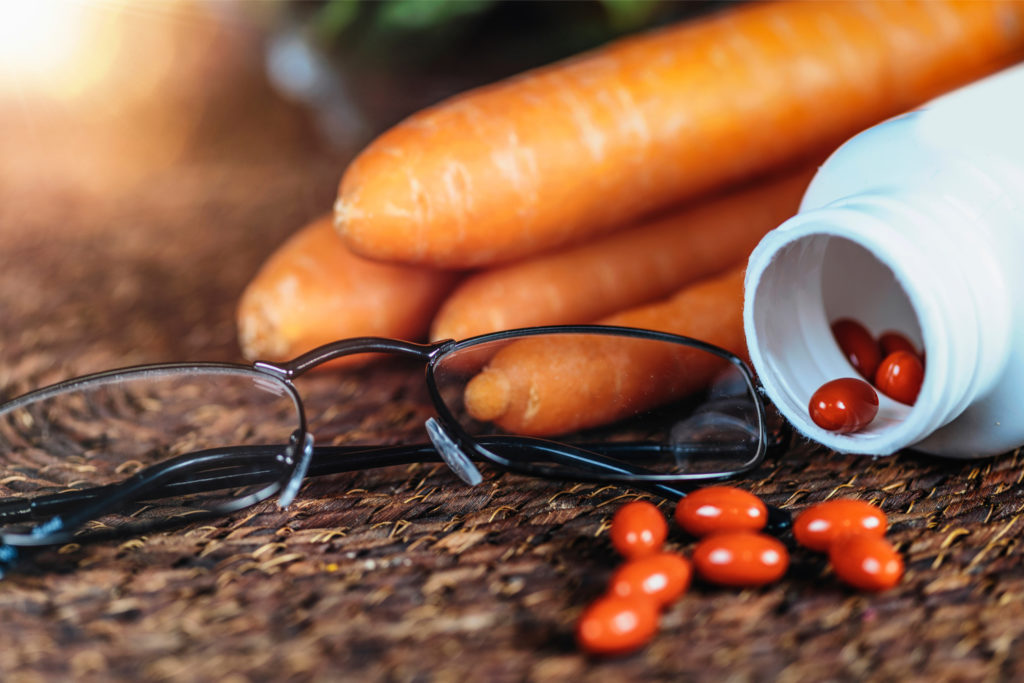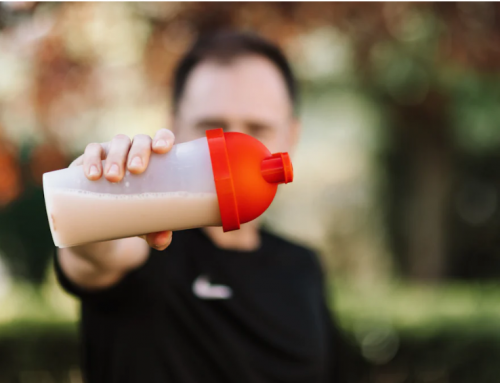Both of these nutrients are chemically similar, with only a minor difference in the atom arrangement.
Since these carotenoids function as antioxidants, they are important to fighting free radicals, a type of unstable molecule. When free radicals are going to work in your body, it can contribute to a variety of negative effects, such as heart disease progression, cancer growth, or aging. By defending against free radicals, they help multiple body systems, including your eyes.
Both of these antioxidants help another important antioxidant known as glutathione. They work to recycle it, so you have enough to keep your body healthy. These nutrients also help to protect the body’s fats, DNA, and proteins from stressors.
Both of these carotenoids can work alone to protect against free radical damage. However, they appear to be more effective when you take them both at the same time.
How They Relate to Eye Health
These two nutrients are often discussed in relation to eye health. While they do protect the whole body, they are especially important when it comes to your eyes. They offer protective benefits against certain eye diseases and promote overall healthier vision.
In your eyes, the yellowish color of the macula is due to these nutrients. In this eye structure, both carotenoids are present in high concentrations.
Lutein & Zeaxanthin to the Rescue
Your eyes have a built-in shield that protects against free radical damage from blue light. The macular pigment, because of its yellow color, is composed of three carotenoids: lutein, zeaxanthin, and meso-zeaxanthin. These carotenoids are potent antioxidants that absorb blue light and neutralize free radicals before they do harm.
A high macular pigment optical density (MPOD), indicative of robust concentrations of lutein and zeaxanthin (including meso-zeaxanthin), is one of the best indicators of macular health. If your MPOD is low, blue light slips past, putting your macula and overall eye health at risk.
Boosting your levels of lutein and zeaxanthin—the only carotenoids that block blue light and counter free radical damage—can help. Your body can’t produce these carotenoids, so you can choose supplements.
Supplements Could Provide Powerful Protection
Scores of scientific studies back the benefits of supplemental lutein and zeaxanthin, and it is a growing field of research. Here are some of the highlights:
1.Reduces symptoms of digital eyestrain
2.Decreases effects of glare
3.Improves night vision
4.Increases MPOD
Additional benefits of supplemental lutein and zeaxanthin that have been demonstrated in clinical trials include improvements in attention, cognitive function, stress, and sleep.







Leave A Comment